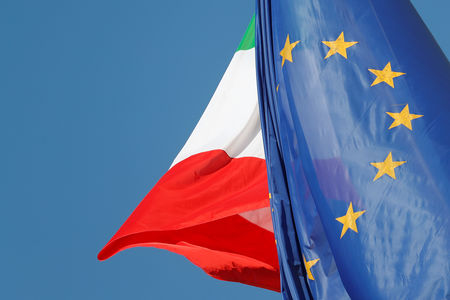
The case of the debt of Italy is worrying the markets, and irritate the EU, which threatens the country from sanctions for budget overruns.
The european Commission, the executive arm of the EU, has estimated last week that the Italian government had not reduced the public debt last year.
The Commission stated that the fiscal management of the Italian government leads the country to a debt that should reach 135% of GDP by 2020.
As a result, the european finance ministers must decide whether the European Commission should engage in against Italy, a process that could lead to fines.
Thus, we propose below to the point on what is reproached to Italy, and on what the country is exhibited in contravention of the rules of the EU :
The countries of the euro area, including Italy, have pledged to keep their deficits below 3% of GDP and their public debt below 60 % of GDP, in accordance with the european treaties.
However, the rules are not too rigid. If a country has not complied with the rules for reasons of ” exceptional and temporary “, the European Commission does not take any action against the member State.
If the gap relative to the tax rules settled in the dirée, as it is obviously the case for Italy, the European Commission can open a Procedure for Excessive Deficit procedure (EDP).
It is a multi-step process that ensures that a country takes measures to reduce its deficit and/or the level of public debt. The process becomes formal when the european finance ministers give their green light, which is not yet the case for Italy.
During this process, Brussels assistance to the member State suggesting to him ways to modify its budget situation.
If this country is not prepared to modify its finances, this procedure provides for the suspension of eu funds paid, and the application of a fine of up to 0.2% of GDP.
Note that no EU country has never been sanctioned in the framework of this procedure for the moment.
“A dead end permanently, with Brussels could be politically successful in Italy, especially for the party Lega Matteo Salvini. This situation, combined with the lengthening of the timetable for the next steps, lends itself to a prolonged confrontation rather than a rapid escalation towards sanctions and fines, ” said Wolfango Piccoli, co-president of the research firm Teneo Intelligence in a note last week.
In other words, a conflict with the EU could be of benefit to the Italian government, politically speaking, what could induce him to take this path.
This inquièterait widely markets, with the key being an increase in the cost of debt for Italy, and therefore a worsening of the problem, which could quickly present a risk of contagion, even before the EU sanctions the country.
And from there to a new european debt crisis, there will be only a tenuous limit to be crossed.







